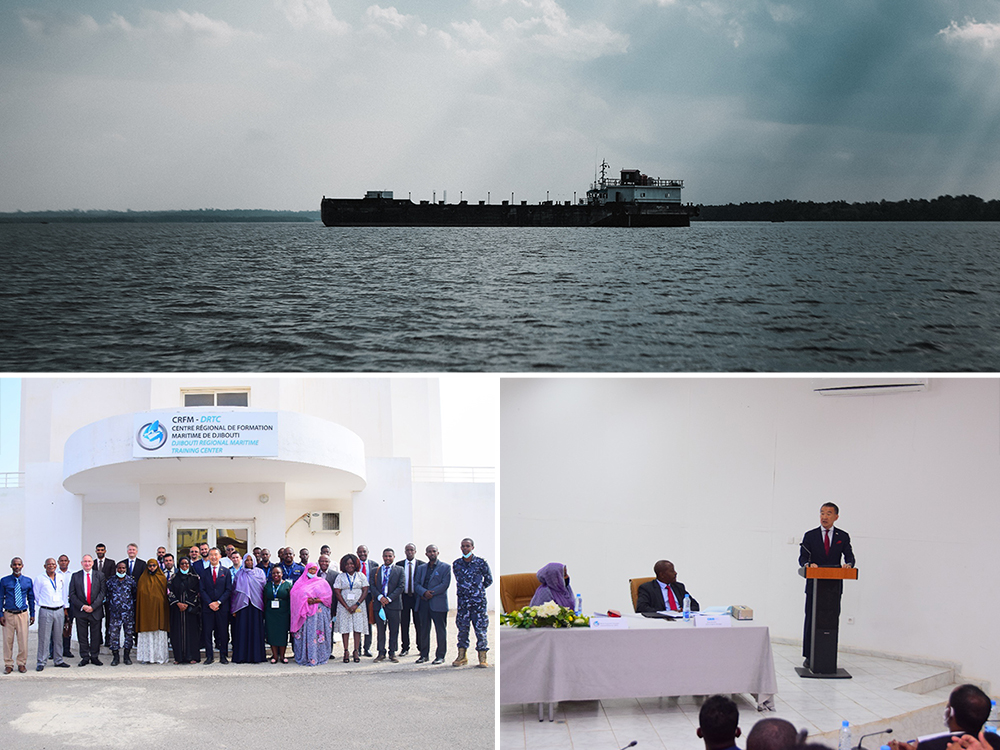Information sharing is critical for maritime security. Best Practices for Information Sharing was the topic for a regional workshop at the Djibouti Regional Training Centre, which brought together participants from 14 countries in the region.
The five-day IMO-led workshop (13 -17 March) examined ways to strengthen the regional Information Sharing Network to detect, deter and disrupt illegal activities at sea. The event, supported by subject matter experts from the United Kingdom and European Union, also explored ways to tailor Maritime Domain Awareness to meet security challenges and modalities for interacting with regional and international MDA networks for regional benefit.
Participants developed planning tools for the advancement of a robust information sharing network (ISN), including tools to assist Member States in establishing National Information Sharing Centres.
Developing regional capability is high on the agenda for signatory States to the Jeddah Amendment to Djibouti Code of Conduct given diminishing support from international naval forces over the past few years, which have seen the conclusion of NATO’s Operation Ocean Shield and the limited extension of authorization for international naval forces to fight piracy off coast of Somalia.
Signatory States have also expressed concerns about the impact of geopolitical events, such as the insurgency in Northern Mozambique and conflict in Yemen, threatening maritime security in the region, including attacks on ports, deliberate targeting of ships and collateral damage.
The workshop was officially launched by His Excellency Otsuka Umio, Ambassador of Japan to Djibouti. Attendees were 23 participants from 14 signatory States to the Jeddah Amendment to Djibouti Code of Conduct: Comoros, Djibouti, Ethiopia, Jordan, Kenya, Madagascar, Mauritius, Mozambique, Oman, Seychelles, Somalia, South Africa, United Republic of Tanzania, and Yemen.
